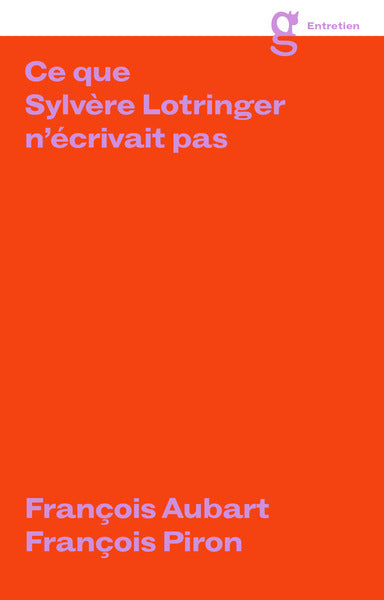Ce que Sylvère Lotringer n'écrivait pas
- Authors: De (auteur) Sylvère Lotringer, De (auteur) François Aubart
- Publishers: PARAGUAY PRESS
- Date of Publication: 2022-03-14
- Pages: 152
- Dimensions: 200mm x 130mm
In 1974 in New York, Sylvère Lotringer, a young French philosopher who had just
hired at Columbia University, decides to start a journal with his
students. Semiotext(e) quickly becomes a transmission belt between
the various currents of critical thought in post-68 France and the
United States and frees itself from the university to open up to all
countercultures of the moment. Semiotician Lotringer reinvents himself as a publisher,
interviewer, but also as a filmmaker and catalyst for an entire scene
artistic and intellectual alternative which contributes, somewhat by chance, to
establish “Cultural Studies” during the 1980s. With the author
Chris Kraus, Lotringer opens the publishing house Semiotext(e) to poetry and
the fiction of many American female authors. In this long-term interview
given to another student body (a group of students from the school
National School of Fine Arts in Lyon, led by François Aubart and
François Piron), Sylvère Lotringer tells the story of a publishing adventure
still alive today and the ways of doing things that he developed for
maintain for 40 years a political line faithful in friendships and attentive to
pulsations of the contemporary world.
Share

